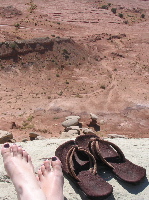Books about Kitties: Dewey and Cheezburgers
The Winter Solstice is quickly approaching, so I know you're looking for gifts for the special people in your life. Lots of people like both kitties and books, so here are two book reviews of recently read kitty-themed books.
Dewey: The Small-Town Library Cat Who Touched the World by Vicki Myron:
On a cold winter night in 1988, someone dumped a small kitten into the book slot at the library in Spencer, Iowa. Naturally, the cat was dubbed "Dewey" and subsequently adopted by the library. Dewey: The Small-Town Library Cat Who Touched the World, while nominally the story of this apparently adorable cat, also tells the story of the librarian, Vicki Myron, who was Dewey's principal steward for the next 18 years. OK, I confess, I got this book nearly two months ago, from the publisher for free in exchange for reviewing it, no less. I had it read less than two weeks after finishing it, but I just couldn't review it. I was already having a fairly difficult month (why do you think I haven't been blogging like I used to?), and then here comes this book that I think is going to be chock full of adorable stories about a cute kitty being cute in a library. So I read it. And, sure enough, there are lots of funny stories about Dewey being a kitty, but there is also a lot about what corn-growing Iowa was like in the 1980s and 90s ... and about the ordinary yet difficult life of Myron herself, and how like many pets since humans have started having pets, Dewey somehow made everything a little bit better. The writing is straightforward and unpretentious—it's really just a librarian talking about her cat—but as the book is a quick read (and enjoyable, once you've located your box of tissues), it's sure to be a good gift for anyone who likes stories about cats or libraries.
For something more upbeat, here's a review of I Can Has Cheezburger?: A LOLcat Colleckshun with more words in the review than in the entire book, by probably an order of magnitude:
It's great having a hardcopy of lolcats (years from now this will still be a conversation starter, whether it lives in a bathroom or on a coffee table), and I was majorly looking forward to receiving my solid dose of happiness-in-book-form in the mail. As expected, it is pretty entertaining, but as other reviewers have noted, it seems that somehow the funniest lolcats were not selected for the book. (Of course, there's no selection which would not engender this kind of response from some group of people, but even though I'm one of Those People who check icanhascheezburger.com several times a day [I bought the book, this shouldn't be surprising, OK?], there were several picture/caption combinations in here that made me just go, "wtf? I don't get it. At all.") The bigger complaint that I have with the book, however, is the presentation: it could do with being a tad bigger, and having some space around the pictures. As is, it is sometimes difficult to tell immediately whether or not the two facing pages are one big lolcat or two completely unrelated ones, and the result is a bit of information overload (and not in a good way, unfortunately). There are several pages on which the presentation is really well done; some space around the picture, a cute little (unrelated) drawing. A few pages are "instruction manuals" or "classroom styles," teaching cats what such terms as "invisible" and "in ur" mean. (Though, again, these pages suffer from the page-size issue.) It's nice to see, in these cases, a presentation which isn't merely "paste picture from int0rnet into book."
Regardless of all these complaints, this LOLcat Collekshun is still a book of lolcats, and any fan of the meme will be happy to get a copy for Christmas or a birthday or a "just cuz." Srsly.


